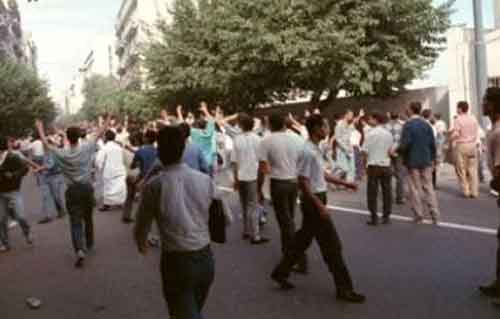Algeria is holding its breath
Saturday’s demonstration, announced by the new Coordination Nationale pour le Changement et la Démocratie (CNCD — National Coordination for Change and Democracy), expected to take place in Algiers and several other cities, will go ahead, notwithstanding a ban on any such demonstrations by the Algerian authorities.
How will the government react? Will the masses join the protests? This will a real test for both the government and opposition. Formed on January 21 in the wake of a protest march against the high cost of living, which left 5 people dead and over 800 injured, CNCD is seeking a systemic “change” in Algeria.
With 70 per cent of the Northern African country’s population under 30 years, the massive youth unemployment that has hit Algeria amid high level corruption and widespread poverty could give impetus to the planned protests.

The protest march comes at a time when an unprecedented wave of revolt continues to shake the foundations of autocratic governments in the Arab world. Algerian writer and academic, Fodil Boumal, one of CNCD’s founding members says that the group has largely been “encouraged” in its “peaceful approach” by the revolutions of Tunisia and Egypt.
Meanwhile, gripped by fear of contagion after the Tunisian revolt, which caused the collapse of Zine El Abidine Ben Ali regime as well as the Egyptian popular uprising, the Algerian government has increased its promises of openness in recent days.
Anti-protest strategy
Algerian authorities have nevertheless been doing all in their power to prevent Saturday’s protest. Some 30,000 policemen have been dispatched to several wilayas (provinces) across the country, according to Al-Khabar newspaper.
The Wali (provincial administrator) of Algiers, Mohamed Kebir Addou, Tuesday, February 8, met with several local officials to prepare an anti-protest strategy, TSA-Algérie, an online newspaper, reported.
The meeting’s objective was to prevent the protest by deploying an extraordinary number of policemen around la place du 1er Mai, where the protestors are expected to converge, and Bab El Oued, another sensitive neighborhood, where riots over the country’s high cost of living erupted early this year.
A massive police deployment is also planned in other cities. These include Boumerdes, Bejaia and Tizi Ouzou. And despite a ban on demonstrations in Oran, CNCD says the protest will take place.
Read More afrik-news

Opinions